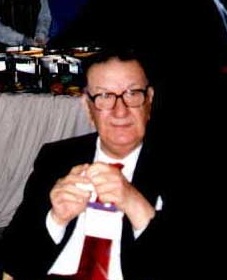İhsan Doğramacı
(physician, academic, businessman, polyglot) | |
|---|---|
 In 1996 | |
| Born | 1915-04-03 Arbil, Ottoman Empire |
| Died | 2010-02-25 (Age 94) Ankara, Turkey |
| Nationality | Turkish |
| Alma mater | Baghdad University, American University of Beirut, Harvard, Istanbul University, Washington University in St. Louis |
Turkish doctor and university administrator | |
İhsan Doğramacı was a pediatric physician and an international leader of development. He was the founder of Bilkent University, a leading private university and Hacettepe University, one of the overall highly ranked universities in Turkey which specializes in medical sciences in Ankara, Turkey, chairman of the UNICEF executive board, founding President of the Council of Higher Education of Turkey (YÖK), executive director and president of International Pediatric Association (IPA), co-ratifier of WHO's constitution, and he had been the first president and the chairman of its board of trustees in WHO (World Health Organization) since 1985. Doğramacı was an honorary member of the Club of Rome.
He spoke Turkish, English, French, German, Arabic and Persian. He authored over 100 scientific articles, three books, six book chapters and served as the editor of four medical journals.
Education
Doğramacı attended school in Erbil and then moved to Beirut, where he graduated from the International College, which is affiliated with the American University of Beirut, in 1932. He then went to the Medical Faculty of Baghdad University for three years. He then went to Turkey, where he graduated as a doctor in Istanbul in 1938. Here he became assistant to the German-Jewish pediatrician Albert Eckstein.[1]
Career
Years in the USA followed, where he worked in Washington, D.C. and worked in Boston. In 1942 he married Ayser Hanım, the daughter of an Iraqi politician. In 1949 Doğramacı became a lecturer at Ankara University and in 1954 he was promoted to professor. In 1958 he founded the Hacettepe University Children's Hospital[2]. Between 1963 and 1965 he was the director of Ankara University.
From 1967 to 1975 he was the director of Hacettepe University. From 1964 to 1973 he was a board member of the European Universities Conference (CRE). From 1981 he was temporarily a board member, president and honorary president of the International Conference on Higher Education (I.C.H.E.). From 1981 to 1992 he was the President of the Turkish University Council(YÖK). In 1984 he founded the private Bilkent University, where the current rector is his son Ali Doğramacı.
He was offered national political leadership positions such as ministry of foreign affairs and premiership by Cemal Gürsel and Süleyman Demirel that he declined.[3]
Other
From 1958 until his death he chaired the Turkish national UNICEF committee. He was a major financial charitable contributor to the UNICEF co-sponsored Turkish educational community campaign [4]. He also worked for the World Health Organization and helped set up medical schools in various countries.
Doğramacı was an honorary member of the Club of Rome and holder of the honorary award of the Turkish Parliament[5]. He also received the European Pro-Humanitate Prize. He was the honorary president of the International Association of Pediatrics.
He co-founded the Assembly of the Parliament of Cultures with Prince Hassan of Jordan and joined members from many nations in Ankara in 2004. The purpose of the Foundation is to promote and strengthen international and intercultural understanding among different cultures in the world and to enhance dialogue between their thinkers and intellectuals by means of peaceful dialogue.
He was one of the Senior Fellows of the Royal Aal al-Bayt Institute for Islamic Thought, Jordan.
Event Participated in
| Event | Start | End | Location(s) | Description |
|---|---|---|---|---|
| Bilderberg/1975 | 25 April 1975 | 27 April 1975 | Turkey Golden Dolphin Hotel Cesme | The 24th Bilderberg Meeting, 98 guests |
References
- ↑ Çimen Günay-Erkol and Arnold Reisman: Émigré Albert Eckstein’s Legacy on Health Care Modernization in Turkey: Two Generations of Students Who Have Made Major Contributions, S. 40
- ↑ https://web.archive.org/web/20071002034103/http://www.hacettepe.com.tr/cocukhastanesi.aspx
- ↑ http://www.bilkent.edu.tr/hocabey/hakkinda.html
- ↑ http://www.unicef.org/turkey/sy8/ge26b.html "Let's Go to School, Girls"
- ↑ https://web.archive.org/web/20070928175832/http://www.patronlardunyasi.com/news_detail.php?id=29223